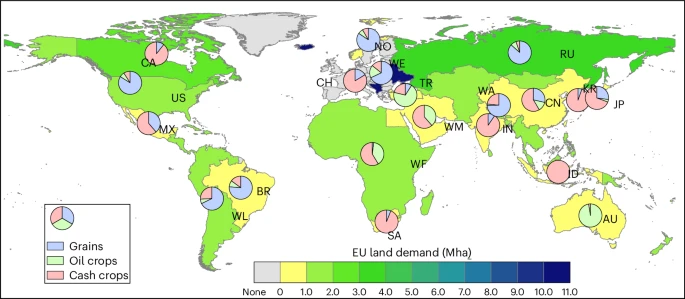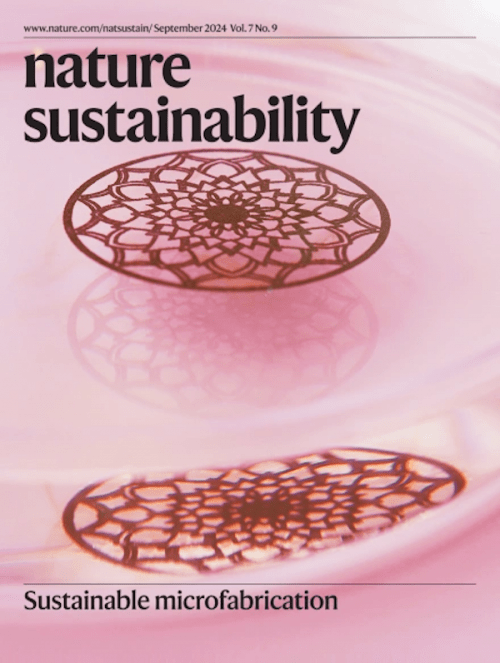Researchers Urge Rethink of European Green Deal’s Global Impact
Associate Professor Kuishuang Feng and Professor Laixiang Sun Call for Alternative Approaches To Avoid Substantial Rise in Land-Related Carbon Emissions Outside European Union
The European Green Deal has set ambitious goals: achieving carbon neutrality by 2050 and transforming the European Union into the leader in clean energy and ecological restoration worldwide. However, a new study suggests that its green vision might come with unexpected global consequences.
Associate Professor Kuishuang Feng and Professor Laixiang Sun, from the Department of Geographical Sciences, along with international colleagues from the Netherlands and China, have identified the unintended consequences of the European Green Deal. Their analysis, "Global Spillover Effects of the European Green Deal and Plausible Mitigation Options," published in Nature Sustainability, warns that while Europe aims for a greener future, its policies could inadvertently increase land-related carbon emissions outside its borders by up to 244.8% of the emissions saved by the Deal.
One of the key Green Deal initiatives is the planting of 3 billion trees to boost biodiversity. However, this massive tree-planting effort demands significant land, which could otherwise be used for growing food. “As a result, food production may shift to other regions, such as Africa or South America, where natural landscapes would need to be converted into cropland, leading to increased carbon emissions and reduced biodiversity,” said Feng.
Although the Green Deal aims to curb environmental loss in other countries by banning imports from regions where forests are cleared for farming, Feng remains skeptical. He noted that countries could still exploit existing farmland for European exports to meet European demand, while clearing forests for their own markets. Additionally, the Green Deal’s push for organic farming could put even more pressure on European farmland, with unclear impacts on land use.

The researchers suggest several alternative strategies to address these issues. Sun proposes adopting the plant-based “planetary health diet,” which could significantly reduce carbon emissions. They also recommend reducing dependence on food-based biofuels, such as ethanol, biodiesel and palm oil, which would decrease the need for farmland. Moreover, the EU could support developing regions in improving agricultural efficiency, thereby reducing land use.
The study highlights that the Green Deal’s current approach may result in a net environmental loss globally. Feng emphasizes the need to shift away from the program’s techno-optimism, stating that “Green Growth” might be unattainable unless we address consumption patterns. With global temperatures threatening to breach the 1.5-degree limit set by the Paris Agreement, the researchers urge immediate action to refine the Green Deal and avoid unintended consequences.
“These actions include promoting sustainable agricultural practices, enhancing international cooperation and rigorously monitoring the global effects of local policies. By taking these steps, the EU can ensure that its climate goals are achieved without shifting environmental burdens to other regions, reinforcing the Green Deal as a model for global sustainability,” said Sun.
Image: Cover of latest Nature Sustainability
Published on Mon, 11/11/2024 - 14:43


